
Algal Research-Biomass Biofuels and Bioproducts
metrics 2024
Transforming algae into tomorrow's sustainable solutions.
Introduction
Algal Research - Biomass Biofuels and Bioproducts is a prestigious academic journal published by Elsevier, dedicated to advancing the field of algal biotechnology and its applications in biomass, biofuels, and bioproducts. With an ISSN of 2211-9264 and a notable impact factor, this journal is recognized as a leading source of innovative research, boasting a current Scopus rank of #31 out of 406 in the domain of Agricultural and Biological Sciences, specifically Agronomy and Crop Science, positioning it in the top 8% of its field (92nd percentile). This open-access publication, established in 2012 and covering literature up to 2024, prioritizes disseminating high-quality research that fosters sustainable solutions for energy and bioproducts derived from algal resources. As a Q1 ranked journal in the 2023 Agronomy and Crop Science category, it serves as a vital resource for researchers, professionals, and students seeking to understand and leverage the potential of algae within the biodiverse framework of bioeconomy and sustainable practices.
Metrics 2024
 0.95
0.95 4.60
4.60 4.80
4.80 100
100Metrics History
Rank 2024
Scopus
IF (Web Of Science)
JCI (Web Of Science)
Quartile History
Similar Journals

BIOTECHNOLOGY ADVANCES
Advancing the Frontiers of BiotechnologyBIOTECHNOLOGY ADVANCES is a premier, peer-reviewed journal published by PERGAMON-ELSEVIER SCIENCE LTD, dedicated to advancing knowledge in the rapidly evolving fields of biotechnology and bioengineering. With an ISSN of 0734-9750 and an E-ISSN of 1873-1899, this esteemed journal covers a wide spectrum of topics relevant to applied microbiology, molecular biology, and biochemical innovation. Recognized for its academic rigor, it holds a distinguished position in the top quartile (Q1) in multiple categories, including Applied Microbiology and Biotechnology, Bioengineering, and Biotechnology, further evidenced by its high rankings in Scopus, where it ranks #3/127 in Applied Microbiology and Biotechnology and #7/311 in Biotechnology. Researchers and professionals in the field value the journal not only for its comprehensive coverage of cutting-edge research but also for its commitment to disseminating critical findings and fostering collaboration. While BIOTECHNOLOGY ADVANCES currently operates under a subscription model, its potential impact on future innovations in biotechnology cannot be overstated, making it an essential resource for anyone interested in the forefront of biotechnological advancements.
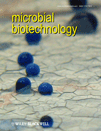
Microbial Biotechnology
Connecting academia and industry through cutting-edge discoveries.Microbial Biotechnology, published by WILEY, stands at the forefront of innovation in the field of applied microbiology and biotechnology, showcasing cutting-edge research and advancements within both academic and industrial contexts. As an Open Access journal since 2012, it ensures that high-quality research is easily accessible to researchers, professionals, and students globally, promoting knowledge sharing and collaboration. With an impressive impact, the journal holds a Q1 ranking in its categories—Applied Microbiology and Biotechnology, Biochemistry, Bioengineering, and Biotechnology—demonstrating its significance in the scientific community. The journal currently boasts a strong Scopus ranking in several relevant disciplines, including a top 10% position in Applied Microbiology and Biotechnology, highlighting its critical role in disseminating influential findings. Designed to foster dialogue and advance technology within the microbial sciences, Microbial Biotechnology is an essential resource for anyone committed to leveraging microbial processes for sustainable and innovative solutions.

CRITICAL REVIEWS IN BIOTECHNOLOGY
Transforming Research Through Critical AnalysisCRITICAL REVIEWS IN BIOTECHNOLOGY, published by Taylor & Francis Ltd, stands as a leading journal in the field of biotechnology, consistently recognized for its rigorous peer-reviewed articles that impact the disciplines of Applied Microbiology, Biotechnology, and Medicine. With an impressive Q1 ranking in these categories and a significant influence reflected in its Scopus rankings—placing it within the top 5% of Applied Microbiology and the top 4% of Biotechnology journals—the journal serves as an essential resource for researchers, professionals, and students alike. Launched in 1983 and extending its coverage to encompass groundbreaking findings through 2024, it provides a rich forum for insightful reviews and innovative research that propel the field forward. Though not an Open Access journal, CRITICAL REVIEWS IN BIOTECHNOLOGY remains a vital point of reference for ongoing developments, critical analyses, and emerging trends, making it indispensable for those seeking to stay at the forefront of biotechnological advancements.
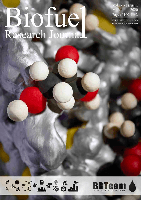
Biofuel Research Journal-BRJ
Transforming energy challenges into sustainable solutions.Biofuel Research Journal (BRJ) is a premier open-access publication that has been at the forefront of advancing knowledge in the field of biofuels since its inception in 2014. Published by Alpha Creation Enterprise in Malaysia, BRJ disseminates high-quality research that spans multiple disciplines, including Biotechnology, Chemical Engineering, and Environmental Science. With an impressive Q1 ranking across various categories in 2023 and a robust Scopus ranking positioning it among the top journals in its field, BRJ is dedicated to promoting innovative solutions that address contemporary energy challenges. The journal serves as a vital resource for researchers, professionals, and students engaged in sustainable energy, offering a platform for sharing cutting-edge findings and fostering interdisciplinary collaboration. With its commitment to open access, BRJ ensures that its content is widely available, supporting the global pursuit of renewable energy and environmental stewardship.

BIOSYSTEMS ENGINEERING
Elevating knowledge in the fields of food and soil science.BIOSYSTEMS ENGINEERING, published by Academic Press Inc. Elsevier Science, is a leading journal that has established itself as a key contributor in the fields of agronomy, crop science, animal science, food science, soil science, and control systems engineering. With an impressive position in the 2023 Category Quartiles, featuring Q1 rankings in Agronomy and Crop Science, Animal Science and Zoology, Food Science, and Soil Science, alongside a Q2 ranking in Control and Systems Engineering, this journal stands at the forefront of innovative research. Currently indexed in Scopus, it boasts a commendable track record, with its Agricultural and Biological Sciences rankings placing it in the 95th percentile for Agronomy and Crop Science and the 90th percentile for Soil Science, among others. With a commitment to disseminating critical advancements and fostering scientific dialogue, BIOSYSTEMS ENGINEERING offers an invaluable platform for researchers, professionals, and students alike, seeking to advance their understanding and application of engineering principles in biological systems. As a hybrid journal that provides both subscription and open access options, it ensures broad accessibility to high-quality research that shapes the future of sustainable agriculture and biological systems.

Biotechnology for Biofuels and Bioproducts
Exploring Innovative Pathways for Sustainable EnergyBiotechnology for Biofuels and Bioproducts is a premier international journal published by BMC, situated in the United Kingdom, focusing on the critical intersection of biotechnology and sustainable energy solutions. Established as an Open Access platform in 2022, this journal aims to disseminate high-quality research that advances our understanding of biofuels, bioproducts, and their applications within environmental sustainability. With its commendable Q2 ranking in multiple relevant categories including Applied Microbiology and Biotechnology and Renewable Energy, this journal serves as a vital resource for researchers, industry professionals, and students seeking to explore innovative biotechnological approaches to address global energy challenges. The journal emphasizes interdisciplinary research, fostering collaboration among scientists in biotechnology, environmental science, and policy-making. As it continues to publish impactful findings until 2024, Biotechnology for Biofuels and Bioproducts remains essential for those dedicated to advancing sustainable methodologies in energy and resource management.

Biomass Conversion and Biorefinery
Advancing interdisciplinary collaboration in renewable energy research.Biomass Conversion and Biorefinery, published by Springer Heidelberg, is a prominent peer-reviewed journal dedicated to advancing the field of renewable energy and sustainable practices. With ISSN 2190-6815 and E-ISSN 2190-6823, this journal serves as a vital platform for researchers, professionals, and students focusing on the valorization of biomass and the development of biorefinery technologies. Notably, it holds a respectable impact factor and is categorized in the Q2 quartile of Renewable Energy, Sustainability and the Environment, indicating its strong influence within the academic community. Covering a wide range of topics from biomass feedstock characterization to innovative bioconversion processes, the journal aims to facilitate interdisciplinary collaboration and knowledge exchange. As it spans in scope from 2011 to 2024, audience members can benefit from timely research insights that contribute to sustainable energy solutions in a world increasingly focused on environmental stewardship.
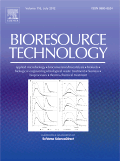
BIORESOURCE TECHNOLOGY
Pioneering the Future of Bioengineering and Resource ManagementBioresource Technology, published by Elsevier Science Ltd, is a leading journal in the fields of bioengineering, environmental engineering, and sustainable resource management. With an impressive impact factor reflected in its Q1 rankings for 2023 across multiple relevant categories, it stands out as a premier source for groundbreaking research from its inception in 1991 to its anticipated contributions through 2024. Bioresource Technology promotes the advancement of technologies and methodologies aimed at the sustainable utilization of biological resources, playing a pivotal role in tackling the challenges of waste management, renewable energy, and environmental protection. Researchers and practitioners are encouraged to contribute and engage with high-quality studies that have significant implications for the global push towards sustainability and innovation. Although the journal does not currently offer Open Access, its subscription model ensures that the rigorous peer-reviewed content remains accessible to those dedicated to advancing the field.
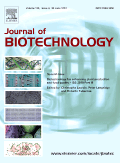
JOURNAL OF BIOTECHNOLOGY
Driving excellence in biotechnological research and applications.JOURNAL OF BIOTECHNOLOGY, published by Elsevier, stands as a premier platform in the fields of Applied Microbiology, Biotechnology, Bioengineering, and Medicine. With an ISSN of 0168-1656 and an E-ISSN of 1873-4863, this journal has significantly contributed to the advancement of biotechnological research since its inception in 1984 and continues to be a vital resource until 2024. Notably ranked in the Q2 quartile across multiple categories, it excels with impressive Scopus rankings, placing within the top 20% in Applied Microbiology and Biotechnology. This underscores its impact on both the scientific community and the ongoing developments in biotechnological applications. The journal encourages submissions that promote innovative research and practical insights, fostering collaboration among researchers, professionals, and students alike. Although it does not currently offer Open Access options, the journal remains highly regarded for its rigorous peer-review process and commitment to excellence in biotechnological literature.
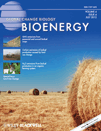
Global Change Biology Bioenergy
Driving Change Through Innovative Bioenergy ResearchGlobal Change Biology Bioenergy, published by WILEY, is a leading peer-reviewed journal that focuses on the interplay between biological processes and bioenergy production, contributing significantly to the fields of agronomy, forestry, and environmental sustainability. Established in 2009, this Open Access journal, based in Germany, has gained recognition in the academic community, boasting impressive quartile rankings in 2023: Q1 in Agronomy and Crop Science, Forestry, Renewable Energy, Sustainability and the Environment, and Waste Management and Disposal. With its rigorous publication standards and commitment to disseminating vital research, Global Change Biology Bioenergy ranks highly in various Scopus categories, ensuring that cutting-edge studies reach a broad audience. By providing a platform for innovative research, the journal fosters collaboration and knowledge exchange among researchers, professionals, and students dedicated to tackling the pressing challenges posed by global change and the future of bioenergy.